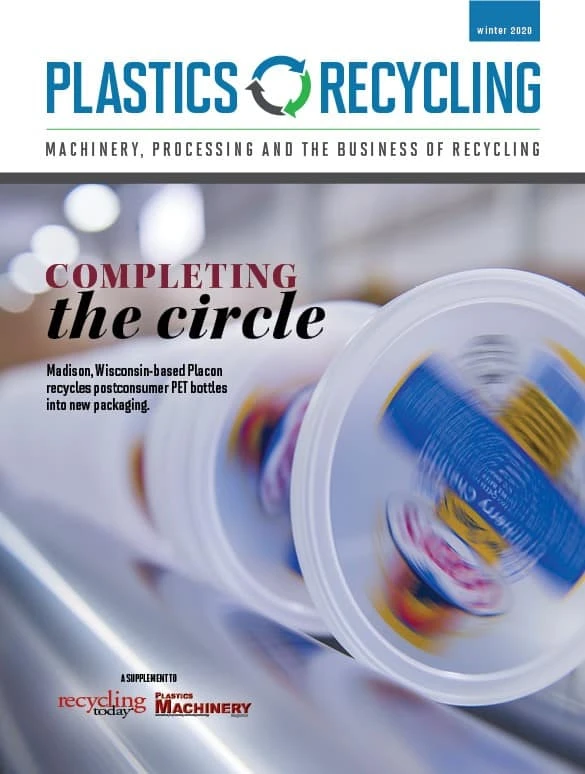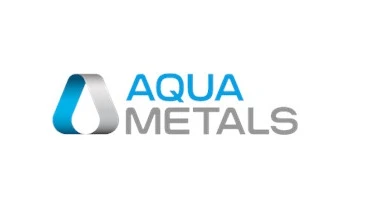
A nonprofit dedicated to sustainability is proposing a two-pronged approach to tackling circular economy challenges, with the goals of funding increased processing capacity for recycled materials and verifying recycled-resin-content claims.
GreenBlue, Charlottesville, Virginia, is working with NSF International, an Ann Arbor, Michigan-based standards organization, to develop a Recycled Material Standard (RMS) by early 2021. The RMS aims to track the recycled plastic supply chain, and to create a marketplace for certificates—similar to carbon offsets—that manufacturers could buy, sell and tout on their products to broadcast their commitment to recycling.
The proposed RMS, a voluntary program, looks to tackle some of the challenges that have hamstrung recycling efforts, says Diana Bach, the sustainability consulting project manager for NSF.
“Brands face challenges in sourcing the type, quality and amount of recycled resin in their direct supply chains, particularly with increasing brand commitments and goals for recycled packaging,” she says. “On the other end of the supply chain, recyclers may not find demand for their product to support the premiums needed to make their business viable.”
Initially targeting plastics packaging, the RMS is designed to address both sets of concerns.
As part of its material-tracking function, the RMS will attest to the amount of recycled content in products throughout the supply chain. This system will specify requirements for material management within an organization to demonstrate that recycled-content claims regarding materials and products are true.
“By providing more options to source and claim recycled content, companies will be able to receive credit for their sourcing practices while maintaining the integrity and reliability of claims due to the chain-of-custody verification,” Bach says.
The second prong of the RMS is Attributes of Recycled Content (ARC) certificates. Bach compares them with Renewable Energy Certificates (RECs)—the carbon offsets companies can buy to make up for their use of fossil fuels.
“In this model, it is the rights of the beneficial attributes of a product that are traded rather than (or in addition to) the product itself,” Bach says. “A company may be receiving electricity from the standard grid mix but purchases RECs in order to claim the beneficial attributes of the renewable power—perhaps to ‘offset’ their usage of electricity from fossil fuels.”
For example, even if their end products do not contain recycled content, manufacturers could buy ARCs to communicate to their customers that they are active in the circular economy.
GreenBlue consultant Laura Thompson says funds from the certificate sales will let recyclers maintain or expand operations, thereby providing buyers and brand owners with increased output of recycled material.
With the ARC exchange, recyclers could receive a premium for recycled material if they comply with the RMS, Bach says.
“The purchase of ARCs provides economic support for the generation of recycled resin, with the intent of expanding market incentives to increase recycling activity across the board,” she adds.
The RMS will define rules for material tracking and the establishment of the certificate program.
Compliance with the RMS will require independent third-party auditing by certification bodies.
“By maintaining a verified chain-of-custody process, third-party validated claims are transferred across each element of the value chain, providing a contiguous assurance mechanism,” Thompson says. “This also creates transparency to the standard and recycled material claims, enabling consumers and other stakeholders to fully understand the meaning of on-package or on-product claims.”
Though the groups are focusing first on the plastic packaging industry in North America, Thompson says the effort could expand. “Ultimately, the RMS could be applied beyond the packaging market to other uses of recycled material, such as the use of recycled plastic in plastic toys or composite lumber, and we eventually hope to expand to a global scope.”

Explore the Winter 2020 Plastics Recycling Issue
Check out more from this issue and find your next story to read.
Latest from Recycling Today
- APR, RecyClass release partnership progress report
- Clearpoint Recycling, Enviroo sign PET supply contract
- Invista expanding ISCC Plus certification program
- Redwood partnership targets recycling of medium-format batteries
- Enfinite forms Hazardous & Specialty Waste Management Council
- Combined DRS, EPR legislation introduced in Rhode Island
- Eureka Recycling starts up newly upgraded MRF
- Reconomy Close the Gap campaign highlights need for circularity





